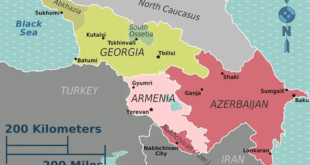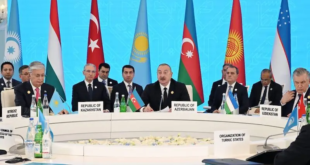 MOSCOW – Russia announced on Monday it will not issue new entry visas to staff working in the British government’s cultural offices in two regions, sharpening a row that has soured already-poor relations.
MOSCOW – Russia announced on Monday it will not issue new entry visas to staff working in the British government’s cultural offices in two regions, sharpening a row that has soured already-poor relations.
Russia ordered the British Council to halt work at the two regional offices from January 1 in a move both sides have linked to a diplomatic feud over the murder of Alexander Litvinenko, a Russian emigre critical of the Kremlin.
Britain has called the Russian order illegal and on Monday the two offices, in St Petersburg and Yekaterinburg, resumed work after the long New Year break, Reuters correspondents in both cities said.
Russia’s Foreign Ministry summoned British ambassador Tony Brenton on Monday and soon after issued a statement blasting Britain for defying the order and keeping its offices open.
“Russia views such actions as an intentional provocation aimed at inflaming tensions in Russian-British relations,” the Foreign Ministry said in a statement posted on its www.mid.ru Web site.
“The Russian side will not issue visas to new employees sent to work in the (British) consular offices of St Petersburg and Yekaterinburg to carry out British Council work” the statement said.
The British ambassador, leaving the Foreign Ministry after his talks with officials, said the British Council would continue its operations in Russia’s regions.
British officials say the Russian move against the British Council is linked to the dispute over Litvinenko’s 2006 murder by radiation poisoning in London, an episode that has driven relations to their lowest level since the Cold War.
Britain named former KGB bodyguard Andrei Lugovoy as its suspect in Litvinenko’s murder, and in July Britain expelled four Russian diplomats over Moscow’s refusal to extradite Lugovoy. Russia expelled four British diplomats in response.
LITVINENKO LINK
The head of the British Council in Russia, James Kennedy, told Reuters in an interview on Monday that Moscow had made the dispute a political one.
“We haven’t made this link, that link has been made by the Russian authorities,” Kennedy told Reuters when asked about a connection to the Litvinenko case.
“We, at the British Council, are a non-political organization. We work in the field of education and culture and we regret that this has been turned into a political dispute.”
Russia says it ordered the two British Council offices to halt their work because of long-standing concerns that their legal status, as separate entities from the British embassy, was not in line with Russian law.
The offices, which promote British culture abroad and arrange educational exchanges, have also been subject to tax investigations. But Russian officials have also made a link to the Litvinenko affair.
 Eurasia Press & News
Eurasia Press & News



